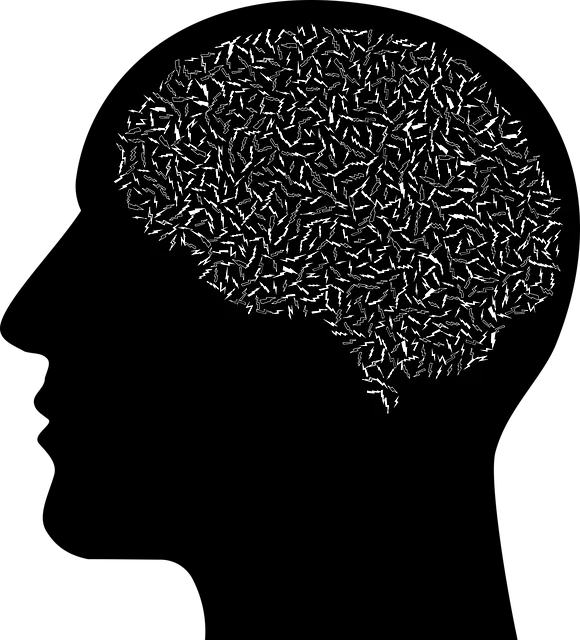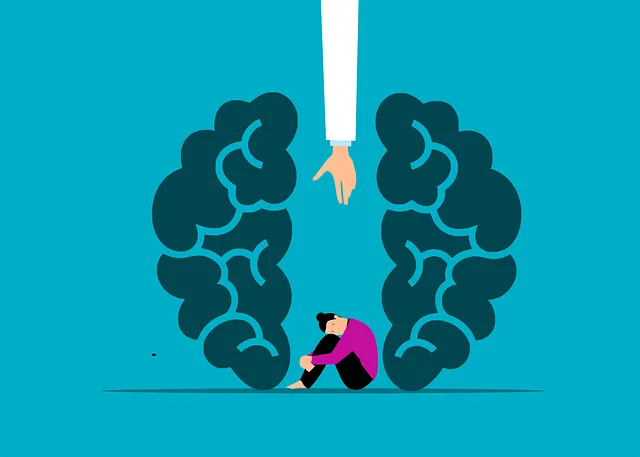Lone Tree Kaiser Permanente's specialized mental wellness group facilitation enhances their comprehensive mental health coverage. Skilled facilitators guide small groups with shared challenges, creating safe spaces for connection and coping strategy sharing. Programs focus on Coping Skills Development, Self-Care Routine Development, and mindfulness techniques, empowering individuals to manage stress and anxiety. Training in healthcare provider cultural competency ensures inclusive support tailored to diverse dynamics. The facilitator's role is vital, fostering engagement through activities like mindfulness meditation and compassion cultivation practices, normalizing mental health discussions and emphasizing the power of social support in recovery. Lone Tree Kaiser Permanente's holistic approach combines empathy, evidence-based practices, and patient-centered care to promote lifelong mental wellness.
Mental wellness group facilitation plays a pivotal role in fostering collective support and enhancing individual well-being. This article explores effective techniques for facilitators, offering insights into creating safe spaces for vulnerable individuals to connect and share experiences. We delve into the transformative power of such groups, highlighting Lone Tree Kaiser Permanente’s commitment to mental health coverage and their innovative approach to group facilitation, ensuring accessible care and improved outcomes.
- Understanding Mental Wellness Group Facilitation
- Role of the Facilitator in a Supportive Environment
- Techniques to Enhance Engagement and Interaction
- Lone Tree Kaiser Permanente's Approach to Mental Health Coverage
Understanding Mental Wellness Group Facilitation

Mental wellness group facilitation is a specialized skill that plays a crucial role in enhancing the effectiveness of mental health support systems, such as those offered by Lone Tree Kaiser Permanente under their mental health coverage. It involves expertly guiding and facilitating small groups of individuals with shared mental health challenges or similar experiences. The goal is to create a safe and supportive environment where participants can connect, share coping strategies, and learn from one another’s journeys.
Skilled facilitators design engaging Mental Health Education Programs that promote Coping Skills Development. Through interactive discussions, activities, and exercises, these programs empower individuals with the knowledge and tools needed to navigate their mental health journeys effectively. Moreover, they foster a sense of community, reduce feelings of isolation, and enhance overall well-being. Healthcare Provider Cultural Competency Training is also integral to this process, ensuring that facilitators can cater to diverse group dynamics and individual needs, making mental wellness support more inclusive and accessible.
Role of the Facilitator in a Supportive Environment

In a supportive environment facilitated by someone from Lone Tree Kaiser Permanente mental health coverage, the role of the facilitator goes beyond merely managing discussions. They create a safe and inclusive space where participants feel empowered to share their experiences and engage in meaningful conversations. Through active listening, empathetic responses, and strategic questions, the facilitator guides the group towards exploring coping mechanisms, enhancing emotional intelligence, and fostering social skills. This environment encourages open dialogue, promoting a sense of belonging and collective healing.
The facilitator also plays a crucial role in integrating various mental wellness techniques such as Self-Care Routine Development for Better Mental Health into group activities. By incorporating exercises that teach stress management, mindfulness, and resilience, the facilitator aids participants in cultivating tools to navigate challenges. Moreover, they ensure that discussions around Mental Health Awareness remain relevant and engaging, normalizing conversations about mental health struggles while emphasizing the importance of social support in recovery.
Techniques to Enhance Engagement and Interaction

Engaging participants and fostering meaningful interactions are key aspects of effective mental wellness group facilitation. One powerful technique to enhance participation is incorporating mindfulness meditation exercises tailored for groups. These practices encourage active listening, promote present-moment awareness, and create a safe space for individuals to connect with their emotions. By guiding the group through guided meditations, facilitators can help members manage stress, reduce anxiety relief, and cultivate a sense of inner calm, thereby improving overall mental wellness.
Additionally, incorporating compassion cultivation practices into sessions can significantly boost engagement. These techniques encourage empathy, understanding, and self-compassion, fostering an environment of support and encouragement. Group members often benefit from sharing personal experiences and receiving positive reinforcement from peers, which further enhances their mental health journey. Lone Tree Kaiser Permanente’s mental health coverage recognizes the importance of such innovative facilitation methods in promoting holistic well-being, ensuring that participants receive comprehensive care tailored to their unique needs.
Lone Tree Kaiser Permanente's Approach to Mental Health Coverage

Lone Tree Kaiser Permanente takes a holistic approach to mental health coverage, recognizing that addressing mental wellness is integral to overall well-being. Their program prioritizes patient-centered care, focusing on empathy building strategies and mind over matter principles. Through individual and group therapy sessions, they foster an environment of support and understanding, aiming to reduce the mental illness stigma that often prevents individuals from seeking help.
By integrating evidence-based practices with compassionate facilitation, Lone Tree Kaiser Permanente empowers patients to navigate their mental health journeys effectively. They encourage open dialogue, ensuring every patient feels heard and validated in a non-judgmental space. This comprehensive approach not only treats existing conditions but also equips individuals with resilience and coping mechanisms for lifelong mental wellness.
Mental wellness group facilitation plays a pivotal role in fostering supportive environments, enhancing engagement, and driving positive change. As demonstrated by Lone Tree Kaiser Permanente’s comprehensive approach to mental health coverage, integrating these techniques can revolutionize care. By understanding the facilitator’s role and employing strategies that encourage interaction, communities can create safe spaces for individuals to navigate their mental wellness journeys together. This collaborative approach not only improves outcomes but also underscores the power of collective support in enhancing overall well-being.






